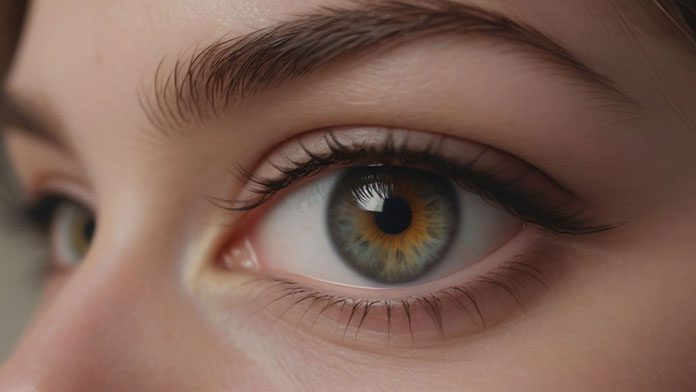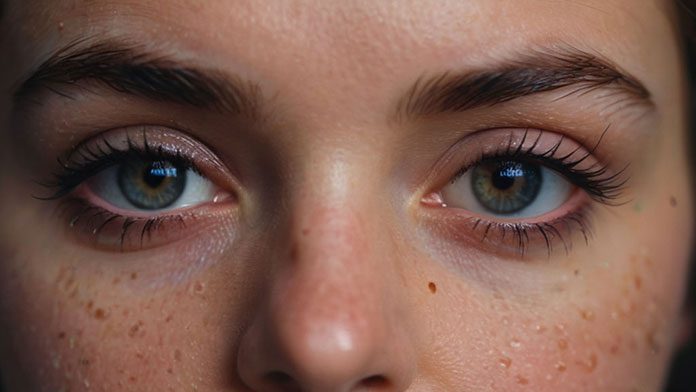Are you curious about the ongoing controversy surrounding the classification of pedophilia as a mental disorder?
In this article, we will explore the arguments for and against this classification, as well as the impact it has on treatment, rehabilitation, and legal considerations.
By examining the diagnostic criteria and societal implications, we aim to provide an objective and evidence-based analysis of this contentious topic.
Join us as we delve into the complexities of this highly debated issue.
Table of Contents

Related Video: "Should pedophilia be treated as mental illness?" by Scripps News
Main Points
– Pedophilia is defined as a specific psychiatric disorder characterized by recurrent and intense sexual fantasies, urges, or behaviors involving prepubescent children.
– Diagnostic criteria for pedophilic disorder are outlined in the DSM-5, including the presence of these fantasies, urges, or behaviors over a period of at least six months, and significant distress or impairment in functioning.
– Cultural considerations and ethical implications should be taken into account when classifying behaviors as mental disorders, as cultural norms and values can influence the perception of normal and pathological behaviors.
– The classification of pedophilia as a mental disorder in the DSM-5 has sparked debates, with some arguing for it to be considered a sexual orientation, while others believe that the classification allows for better understanding and treatment options.
Defining Pedophilia

Defining pedophilia involves examining the attraction towards prepubescent children as a primary sexual interest. It has been a subject of debate whether pedophilia should be considered a mental illness or a mental disorder. To address this controversy, it’s necessary to analyze the available evidence objectively.
Pedophilia is defined by the Diagnostic and Statistical Manual of Mental Disorders (DSM-5) as a specific psychiatric disorder. According to the DSM-5, pedophilia is characterized by recurrent and intense sexual fantasies, urges, or behaviors involving prepubescent children, typically aged 13 years or younger. The individual experiencing these attractions must be at least 16 years old and at least five years older than the child.
The classification of pedophilia as a mental illness or disorder is based on clinical observations and research findings. It’s important to note that not all individuals with pedophilic desires act on their attractions. However, those who do engage in illegal or harmful behavior towards children are considered to have a mental disorder.
The distinction between mental illness and mental disorder lies in the potential harm caused to others. Pedophilia itself may not be considered a mental illness as it doesn’t inherently lead to distress or impairment in functioning. However, when individuals act on these attractions, causing harm to children, it’s considered a mental disorder due to the harmful consequences it inflicts on others.
Diagnostic Criteria for Mental Disorders

When examining the diagnostic criteria for mental disorders, it’s important to consider the validity of these criteria. Are they based on sound scientific evidence and supported by research?
Additionally, cultural considerations must be taken into account, as what may be deemed as abnormal in one culture might be considered normal in another.
Validity of Diagnostic Criteria
To determine whether pedophilia should be classified as a mental disorder, you need to assess the validity of the diagnostic criteria for mental disorders. Valid diagnostic criteria ensure that the disorder being diagnosed is accurately identified and distinguished from other conditions.
In the case of pedophilia, the current diagnostic criteria are outlined in the Diagnostic and Statistical Manual of Mental Disorders (DSM-5). The DSM-5 criteria for pedophilic disorder include recurrent, intense sexual fantasies, urges, or behaviors involving prepubescent children over a period of at least six months, as well as significant distress or impairment in social, occupational, or other important areas of functioning.
However, some researchers argue that the diagnostic criteria for pedophilia should be refined to better align with empirical evidence and clinical observations. They suggest that the current criteria may not adequately capture the complexity and heterogeneity of pedophilic disorder.
Cultural Considerations in Diagnosis
The validity of diagnostic criteria for mental disorders is influenced by cultural considerations, which should be taken into account when assessing the classification of pedophilia as a mental disorder.
Cultural norms and values vary across societies, and what may be considered acceptable or deviant behavior in one culture, may not hold true in another. This raises questions about the universality of diagnostic criteria and the potential bias they may carry.
The cultural context in which a behavior occurs plays a significant role in determining whether it’s considered a mental disorder or not. For instance, in some cultures, intergenerational relationships may be viewed as acceptable, while in others, they’re strictly condemned.
It’s essential to consider these cultural variations when diagnosing pedophilia to avoid pathologizing behaviors that may be considered normative in certain contexts.
Ethical Implications of Labeling
Labeling a behavior as a mental disorder carries ethical implications that warrant careful consideration. When it comes to diagnosing and labeling mental disorders, there are several ethical concerns that need to be addressed:
– Stigmatization: By labeling a behavior as a mental disorder, there’s a risk of stigmatizing individuals who may already be marginalized or vulnerable. This can lead to discrimination, social exclusion, and a negative impact on their overall well-being.
– Informed consent: It’s crucial to obtain informed consent from individuals before diagnosing them with a mental disorder. This involves ensuring that they fully understand the implications of the diagnosis, including potential consequences such as limitations on employment opportunities or access to certain rights.
– Pathologizing normal variations: There’s a risk of pathologizing normal variations in human behavior by labeling them as mental disorders. This can undermine diversity and promote a narrow understanding of what’s considered ‘normal.’
Considering these ethical implications is essential for ensuring that the diagnostic criteria for mental disorders are fair, unbiased, and respectful of individuals’ rights and well-being.
Pedophilia and the DSM-5

The classification of pedophilia in the DSM-5 is a topic of significant debate and controversy. The DSM-5 defines pedophilic disorder as a mental disorder characterized by recurrent, intense sexual fantasies, urges, or behaviors involving sexual activity with a prepubescent child.
The inclusion of pedophilia in the DSM-5 has important implications for the diagnosis, treatment, and understanding of this condition, as well as the legal and ethical considerations surrounding it.
DSM-5 and Pedophilia Classification
In considering the classification of pedophilia in the DSM-5, it’s important to understand the ongoing controversy surrounding this topic. The DSM-5, which stands for the Diagnostic and Statistical Manual of Mental Disorders, is a widely used diagnostic tool in the field of psychology. When it comes to pedophilia, there are several key points to consider:
– The DSM-5 classifies pedophilia as a mental disorder. Pedophilia is characterized by recurrent, intense sexual fantasies, urges, or behaviors involving prepubescent children.
– The classification of pedophilia as a mental disorder has sparked debates and controversies among professionals in the field. Some argue that pedophilia should be considered a sexual orientation rather than a mental disorder.
– Others believe that classifying pedophilia as a mental disorder allows for better understanding and treatment options for individuals who struggle with these urges.
Ultimately, the classification of pedophilia in the DSM-5 is a complex and contentious issue that continues to be debated within the field of psychology.
Implications of Diagnostic Criteria
To better understand the implications of diagnostic criteria for pedophilia in the DSM-5, you should consider the specific criteria used to classify this mental disorder. According to the DSM-5, pedophilia is characterized by recurrent, intense sexual fantasies, urges, or behaviors involving prepubescent children.
The individual must be at least 16 years old and at least five years older than the child they’re attracted to. Additionally, the individual must experience significant distress or impairment in important areas of functioning due to their attraction to children. It’s important to note that the DSM-5 doesn’t consider pedophilic disorder as a diagnosis if the individual hasn’t acted on their attractions or if they experience distress but don’t exhibit any harmful behaviors.
The diagnostic criteria outlined in the DSM-5 have significant implications for the identification and treatment of individuals with pedophilic disorder, as they provide a clear framework for assessment and intervention.
Cultural Perspectives on Pedophilia
Consider the cultural perspectives on pedophilia and its relationship to the DSM-5’s diagnostic criteria. Cultural perspectives play a crucial role in defining and understanding pedophilia. Here are three key points to consider:
– Cultural Variations: Different cultures have varying attitudes and beliefs about pedophilia. Some cultures may view it as a moral or ethical issue, while others may consider it a criminal act. Understanding these cultural variations is essential to comprehending the complexities surrounding this issue.
– Stigma and Taboo: Pedophilia is universally stigmatized and considered taboo in most cultures. The strong societal condemnation often makes it difficult for individuals with pedophilic tendencies to seek help or treatment. Addressing this stigma is crucial for supporting prevention efforts and providing assistance to those in need.
– Legal and Ethical Considerations: Laws governing pedophilia vary across countries, reflecting different cultural perspectives on this issue. These legal and ethical frameworks impact the identification, reporting, and treatment of individuals with pedophilic tendencies.
Controversies Surrounding the Classification
One major controversy surrounding the classification of pedophilia is the debate over its inclusion as a mental disorder. While some argue that pedophilia should be classified as a mental disorder due to its harmful and deviant nature, others question whether it is appropriate to pathologize individuals with this attraction. Here is a table summarizing the key arguments on both sides:
| Arguments in Favor of Classification | Arguments Against Classification |
|---|---|
| Pedophilia causes significant distress and impairment in individuals | Not all individuals with pedophilic disorder act on their attractions |
| It is important to provide treatment and support to individuals with pedophilic disorder | Classifying pedophilia as a mental disorder may perpetuate stigma and discrimination |
| Pedophilic disorder can be identified and diagnosed, allowing for intervention and prevention | The inclusion of pedophilia as a mental disorder may blur the line between thoughts and actions |
It is essential to consider the potential consequences and implications of classifying pedophilia as a mental disorder. While it is important to protect children and ensure appropriate interventions, it is equally important to promote understanding and provide support to individuals who may be struggling with this attraction. Further research and dialogue are necessary to navigate this controversial topic and develop appropriate approaches to addressing pedophilia.
Arguments for Pedophilia as a Mental Disorder
Pedophilia’s classification as a mental disorder is supported by evidence highlighting its detrimental impact on individuals’ mental well-being. While the controversy surrounding this classification persists, several arguments have been put forth to support the notion that pedophilia is indeed a mental disorder. Consider the following points:
– Psychological Distress: Numerous studies have shown that individuals with pedophilic tendencies often experience significant psychological distress. These individuals often struggle with feelings of guilt, shame, and inner conflict, which can lead to severe mental health issues such as depression and anxiety.
– Impaired Functioning: Pedophilia can impair an individual’s ability to function effectively in various areas of life. Relationships, work, and social interactions may suffer as a result of the intense preoccupation with inappropriate sexual desires, leading to a decline in overall mental well-being.
– High Rates of Comorbidity: Research has consistently found high rates of comorbidity among individuals with pedophilia. Many individuals with this disorder also suffer from other mental health conditions such as substance abuse disorders, personality disorders, and mood disorders, further supporting its classification as a mental disorder.
These arguments, rooted in empirical evidence, underline the significant impact pedophilia can have on an individual’s mental well-being, providing a basis for its classification as a mental disorder.
It’s crucial to continue studying this controversial topic to develop effective prevention and treatment strategies that prioritize both the safety of potential victims and the well-being of those with pedophilic tendencies.
Arguments Against Pedophilia as a Mental Disorder
While it is important to acknowledge the arguments against pedophilia being classified as a mental disorder, it is worth noting that these viewpoints are not without controversy. Critics argue that labeling pedophilia as a mental disorder may inadvertently provide a justification or excuse for the harmful actions of individuals who engage in pedophilic behavior. They argue that it could shift the blame away from the perpetrators and create a perception that they are not fully responsible for their actions.
Another concern raised by opponents is that classifying pedophilia as a mental disorder may stigmatize individuals who experience pedophilic attractions but do not act upon them. They argue that this could discourage individuals from seeking help and support, as they may fear being labeled as a danger to society.
Moreover, some critics argue that the focus should be on preventing the harm caused by pedophilic behavior rather than on diagnosing and treating pedophilia as a mental disorder. They suggest that efforts should be directed towards educating the public, implementing effective prevention strategies, and providing support for survivors.
Table:
| Arguments Against Pedophilia as a Mental Disorder |
| :————————————————- |
| – Labeling pedophilia as a mental disorder may inadvertently excuse harmful actions. |
| – Classification may stigmatize individuals who experience pedophilic attractions but do not act upon them. |
| – Focus should be on prevention and support for survivors rather than diagnosis and treatment. |
Impact on Treatment and Rehabilitation
Treatment and rehabilitation for individuals with pedophilic tendencies can be complex and challenging. It’s important to explore the impact that such interventions can have on these individuals and society as a whole.
Here are three key points to consider regarding the impact of treatment and rehabilitation for individuals with pedophilic tendencies:
– Reducing risk of reoffending: Treatment programs aim to reduce the risk of individuals with pedophilic tendencies engaging in harmful behaviors. Research suggests that cognitive-behavioral therapy (CBT) can be effective in addressing distorted thinking patterns and enhancing self-regulation skills, thereby reducing the likelihood of reoffending.
– Promoting empathy and accountability: Rehabilitation efforts also focus on promoting empathy and accountability among individuals with pedophilic tendencies. By encouraging them to understand the impact of their actions on victims and society, rehabilitation programs seek to foster a sense of responsibility and a commitment to non-offending behavior.
– Supporting community reintegration: Successful rehabilitation involves preparing individuals for reintegration into the community. This includes providing them with social support networks, teaching them coping skills to manage triggers, and helping them develop alternative healthy behaviors. By addressing the underlying factors contributing to pedophilic tendencies, rehabilitation programs aim to facilitate a safer and more successful community reintegration process.
It is crucial to continue researching and evaluating the effectiveness of different treatment and rehabilitation approaches to ensure the safety and well-being of both individuals with pedophilic tendencies and potential victims.
Societal Implications and Legal Considerations
One significant societal implication and legal consideration is the need for effective prevention strategies to protect potential victims. As pedophilia is considered a sexual attraction to prepubescent children, it poses a serious risk to the safety and well-being of children. Society must prioritize the implementation of preventative measures to ensure the protection of potential victims. This can include comprehensive sex education programs in schools, promoting awareness and understanding of child sexual abuse, and encouraging reporting mechanisms for suspected cases.
Legal considerations also play a crucial role in addressing pedophilia. Laws need to be in place to safeguard children and hold perpetrators accountable for their actions. These laws should include strict penalties for those who engage in illegal activities involving children, such as possessing or distributing child pornography or engaging in sexual acts with minors. Additionally, legal systems should prioritize the rehabilitation and treatment of individuals with pedophilic tendencies to prevent future offenses.
However, it’s important to balance the need for prevention and legal measures with the principles of fairness and respect for individual rights. While it’s important to protect potential victims, it’s also crucial to ensure that individuals with pedophilic tendencies aren’t unjustly stigmatized or discriminated against. Striking this balance is a complex and challenging task that requires a comprehensive understanding of the issue and a nuanced approach to policy-making.
Frequently Asked Questions
How Prevalent Is Pedophilia in Society?
Pedophilia's prevalence in society is a complex issue. It's important to approach this question objectively, considering reliable research and data. Understanding the extent of its occurrence requires a comprehensive examination of various factors, including cultural, social, and psychological influences.
What Are the Long-Term Effects of Pedophilia on Victims?
The long-term effects of pedophilia on victims can be devastating. It can result in severe psychological trauma, emotional disorders, and difficulties in forming healthy relationships. Support and therapy are crucial for healing and recovery.
Are There Any Known Biological or Genetic Factors That Contribute to the Development of Pedophilia?
There are known biological and genetic factors that contribute to the development of pedophilia. Understanding these factors can help identify potential risk factors and develop effective prevention strategies.


